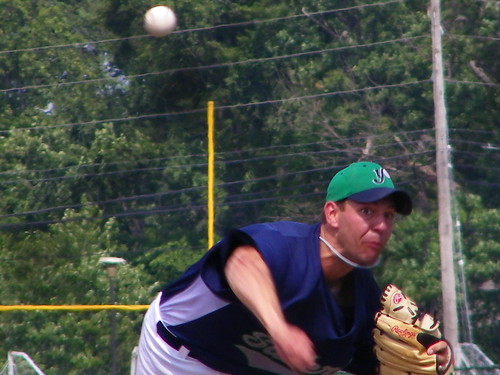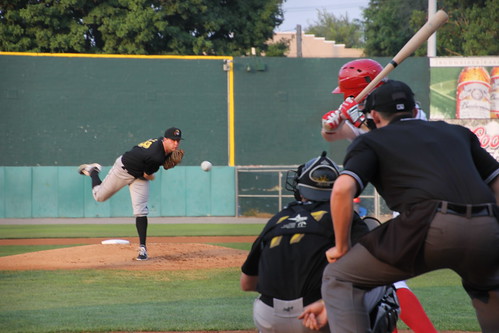We are heading to one of the most famous addresses in all of popular culture. 79 Wistful Vista - the home of Fibber McGee and Molly. This episode is called the Baseball Instructor and it dates from July 22, 1935. This was one of the earliest shows in this long-running series. In 1935, the World Champion Detroit Tigers were led by Hall of Famer Hank Greenberg. Over on the National League, the pennant winners were led by Gabby Hartnett. 1935 was also when Fibber McGee and Molly started - and they received some good reviews right off the bat:
Fibber McGee and Molly - Billboard - April 27, 1935 (page 10)
Fibber McGee, aided by his wife and heckler, Molly, Contributes a funny and enjoyable program, one, in fact, that is likely to send the name of the team into the higher bracketed radio field. In common with other radio acts, the Fibber isn't actually a new wrinkle - he is sort of an Irish Baron Munchausen - but with the combination of a good delivery with good materials insures success. First show was well paced and liberally sprinkled with laughs.
We find ourselves at 79 Wistful Vista on opening day of the baseball season. Molly, as it turns out, is a huge fan with an encyclopedic knowledge of baseball history. And there is nothing that she would rather do on this opening day than visit the ballpark. However, the game is sold out. Still Fibber insists he can get into the game, however, he will not buy a ticket. As he puts it "If I can't get in on a pass - I won't go!"
Fibber McGee insists it will be his good luck that gets them into the game. After all, he is the president of the chamber of commerce and is blessed with good fortune. When he is offered tickets, all seems like it is going according to plan. But those tickets were not for the opener, so they pass.
When Mayor LaTrivia comes to see the McGees, he brings them a big problem. The Mayor (played by the great radio and TV actor Gale Gordon - who we will hear on future episodes on this series), as it turns out, is not a baseball man. So he is supposed to throw out the first pitch, but he does not know how to do just that. So Fibber McGee is up to the task of teaching the Mayor how to toss out the opening pitch. And remember how you get to Carnegie Hall? Practice, practice, practice!
The Baseball Instructor (July 22, 1935)
Here are some links to programs relating to Fibber McGee and Molly:
- Fibber McGee and Molly radio program episodes via the Internet Archive
- Fibber McGee and Molly radio program episodes (added site from the Internet Archive)
- Fibber McGee and Molly on Jerry Haendiges Vintage Radio Logs
- Fibber McGee and Molly from the RadioGOLDINdex
- Fibber McGee and Molly page on the Wikipedia
- Episode 1: Baseball Murder on 'The Saint' with Vincent Price
- Episode 2: The Day That Baseball Died from the Columbia Workshop
- Episode 3: Baseball and Gambling from Boston Blackie
- Episode 4: The Baseball Instructor with Fibber McGee and Molly (1935)
- Greg Bell's Old time radio channel on Sirius/XM Radio (#148)
Other Old Time Radio Series by Corey



